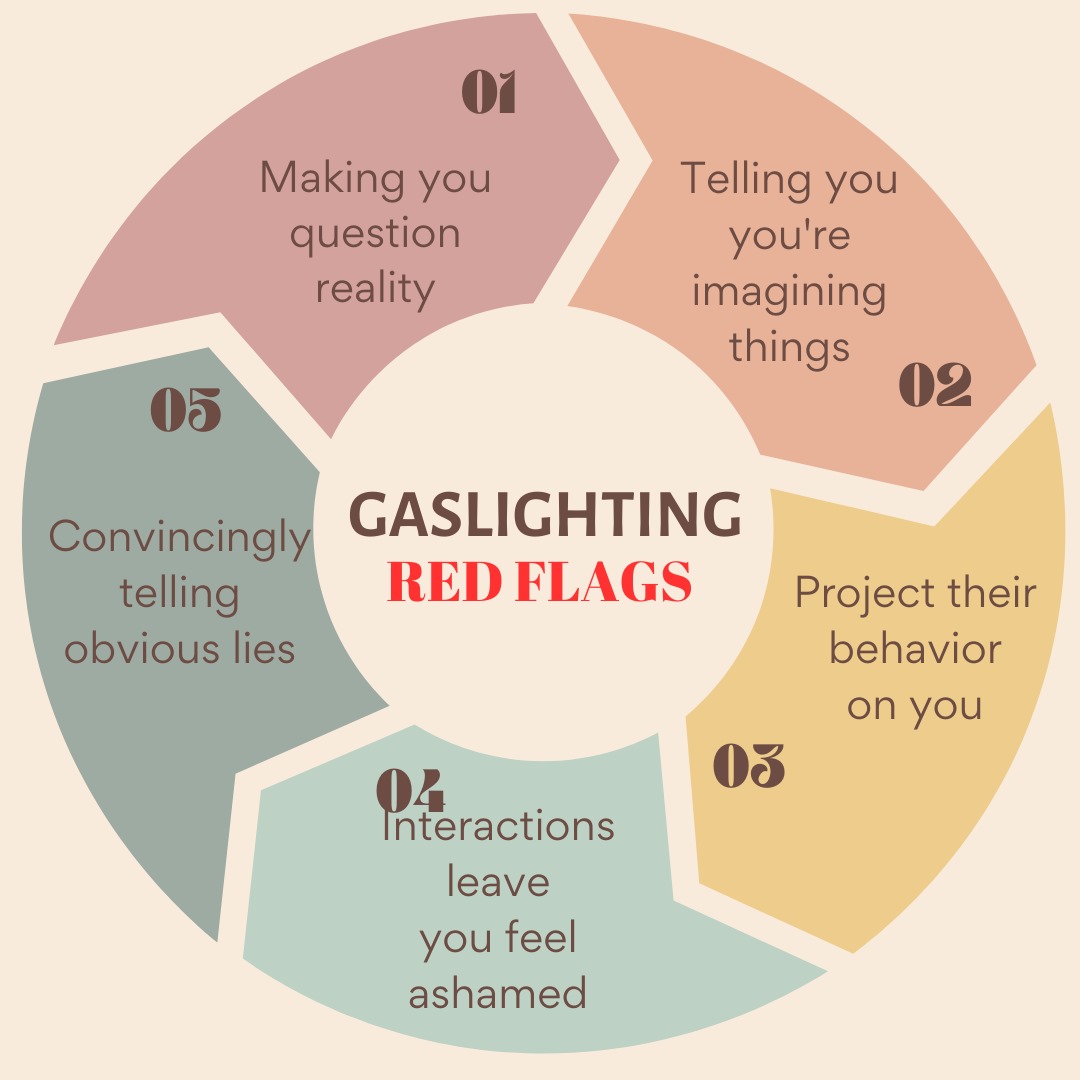Gaslighting: Recognizing and Addressing Psychological Manipulation
Introduction:
Gaslighting is a form of psychological manipulation that can have a profound impact on a person’s mental and emotional well-being. It involves intentionally making someone doubt their own perception, memory, or sanity. In this blog post, we will explore the signs of gaslighting and provide strategies for recognizing and addressing this insidious manipulation tactic.
Consequences of a gaslighting relationship:
Being in a gaslighting relationship can have severe consequences for the victim’s emotional and mental well-being. The constant questioning of reality and the erosion of self-confidence can lead to long-lasting trauma, anxiety, and depression. Gaslighting can also result in reduced self-esteem and feelings of worthlessness, as the victim is consistently criticized and belittled. Additionally, gaslighters may isolate their victims from support networks, leading to social withdrawal and increased feelings of loneliness. The emotional toll of gaslighting can also manifest in physical health issues such as headaches, stomach problems, and sleep disturbances.
Recognizing Gaslighting:
Gaslighting can be difficult to recognize as it often happens gradually and subtly. However, being aware of the following signs can help you identify if you are being gaslighted:
- Discrediting Your Reality:
- Gaslighter: “I never said that. You must be remembering it wrong.”
- You: “I distinctly remember you telling me that just yesterday.”
- Constant Lies and Manipulation:
- Gaslighter: “You’re overreacting. I never said I would do that for you.”
- You: “But you made that promise to me just a week ago.”
- Blame Shifting:
- Gaslighter: “If you didn’t constantly make me angry, I wouldn’t have to act this way.”
- You: “But I’m not responsible for your actions and emotions.”
- Undermining Self-Confidence:
- Gaslighter: “You’re so clumsy. I can’t believe you messed up again.”
- You: “I made a mistake, but it doesn’t mean I’m incapable or clumsy.”
- Withholding Information:
- Gaslighter: “I didn’t tell you because I thought you didn’t care about it.”
- You: “I do care and would appreciate being kept informed.”
- Isolation from Others:
- Gaslighter: “Your family doesn’t understand us. It’s best to distance ourselves.”
- You: “I value my relationships with others and need their perspectives too.”
Addressing Gaslighting:
If you suspect you are being gaslighted, it is essential to take action to protect your mental and emotional well-being. Here are some strategies to address gaslighting:
Trust your instincts: Listen to your intuition. Acknowledge and validate your feelings if something feels off or doesn’t align with your experiences.
Seek support from trusted others: Share your experiences with close friends, family, or professionals who can provide an outside perspective and offer support.
Educate yourself about gaslighting: Understanding the dynamics of gaslighting can help you recognize manipulative tactics and develop strategies to counter them.
Set boundaries: Establish clear personal boundaries and communicate them assertively. This helps protect yourself from further manipulation and establishes your right to your thoughts and feelings.
Practice self-care: Engage in activities that promote self-care and self-compassion. Focus on building resilience and nurturing your emotional well-being.
Consider professional help: If gaslighting has severely impacted your mental health, seeking therapy or counselling can provide a safe space to heal and regain clarity.
Several movies address the theme of gaslighting and explore the psychological manipulation involved. Here are a few examples:
Gaslight (1944) – This classic film is often considered the quintessential portrayal of gaslighting. It follows a woman who begins to doubt her sanity as her husband manipulates her environment and questions her perception of reality.
Sleeping with the Enemy (1991) – This thriller revolves around a woman who escapes an abusive marriage. Her husband’s gaslighting tactics and control over her life are prominently depicted as she tries to break free.
The Girl on the Train (2016) – In this mystery thriller, the main character becomes embroiled in a complex web of gaslighting and manipulation as she tries to uncover the truth about a missing woman.
Gone Girl (2014) – This psychological thriller explores manipulation and deceit within a marriage. The complex plot exposes the gaslighting tactics employed by both partners to control and manipulate each other.
These movies portray the theme of gaslighting in different ways and can provide insights into the devastating effects of psychological manipulation. Remember that some of these films may contain intense or triggering content, so it’s essential to consider your emotional well-being before watching them.
Conclusion:
Gaslighting is a harmful and manipulative tactic that can leave lasting emotional scars. Recognizing the signs and addressing gaslighting is crucial for protecting your mental and emotional well-being. Remember, you have the right to trust your reality and surround yourself with supportive and loving relationships.
By bringing awareness to gaslighting, we can empower ourselves and others to recognize and address this insidious form of psychological manipulation.
We hope this blog post helps shed light on gaslighting and provides readers with helpful information to navigate and address this form of manipulation. Remember, you deserve to be heard, validated, and supported in your reality.
It is essential for victims of gaslighting to seek support from trusted individuals and professionals to recover and rebuild their self-esteem and emotional well-being.

